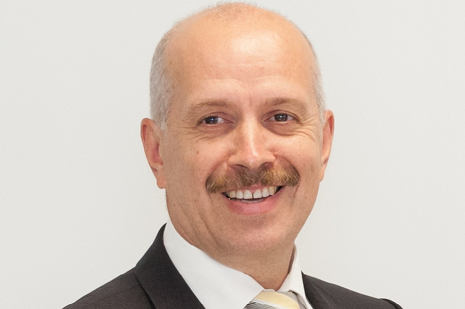
Dimitri joined IATA in 1996 as Country Manager, Russia, after working at Aeroflot.
He currently sits in Moscow where he covers the Russian Federation and Belarus. There are 12 IATA member airlines in this cluster: Aeroflot, AirBridge Cargo, Belavia, Ikar, Nordstar, Nordwind, Rossiya, Rusline, S7 Airlines, Smartavia, Ural Airlines and Utair.
Dimitri in his own words:
“I regard myself as a true aviation person. As a student, on my summer breaks, i worked as a baggage loader at the Moscow Sheremetyevo airport. I remember as if it were yesterday how I first smelled the kerosene from these big heavy jets arriving from all around the world, and how this actually felt like freedom! Freedom of traveling to unknown places, learning new things and becoming part of a global family. The dream came true, first when I joined Aeroflot, then at IATA. My professional career has included facing many tough challenges but has led me to take on various jobs, living in three different countries and making many good friends all across Europe and beyond -Montreal, Delhi and many more-. And it all started with the smell of kerosene!“
***
Dimitri, thanks for taking the time to answer our questions, particularly in such challenging times.
I can’t think of any country that escaped this crisis, Russia being no exception. Our territory comprises 11 time zones and many remote areas depend entirely on aviation. Our Russian member airlines are so far sustaining the blow, as not one of them has gone bankrupt. In parallel, our national currency (the ruble) devaluated 10%! This has put extra strain on carriers, as they pay aircraft leases either in USD or EUR. Despite the dire situation, I see two reasons for such resilience. Firstly, albeit shrinking, domestic operations continued. Secondly, we have had to face so many crises these past 20 years, that airlines are now better prepared to weather these, particularly by controlling their costs mercilessly.
We are grateful to the Russian government, from the President to the Ministry of Transport and the Federal Air Transport Agency for catering to airlines’ needs. This took the shape of both lending financial support, and listening to the industry with regards to the use of global standards and best practices. Of course, we all want more from the governments because aviation represents a real engine for the national economy, as well as a critical element of social life.
Exceptional cases require exceptional treatment. We are in an unprecedented situation where everybody inside our value chain is suffering – passengers, airports, aviation suppliers, banks, etc. Airlines have been particularly affected. The only way to survive is to share the pain. In Russia we look forward to the adoption of a new law (supported by the State Duma and now under review from the Council of Federation) aimed at simultaneously strengthening the right of a passenger to get a refund in a pandemic situation, but also (hopefully) to provide room for other forms of refunds than cash.
We are somewhat “lucky” here in Russia in the sense that we joined “the pandemic race” later than others. This has enabled us to observe other countries’ approaches to restart. We are working closely with Russian Members and the government, sharing best practices and positions of European regulators such as EASA and ECDC, as well as IATA, which is a truly global body. We are receiving positive signals that we should have a consensus on some highly critical issues including onboard social distancing, which the industry opposes.
A short answer is… “yes… but”. While indeed, roughly half of Russian airlines’ business is domestic, demand on this segment has severely declined, and must be restored to be used as leverage. Too many uncertainties exist when it comes to lifting restrictions in other countries. You can therefore expect the pendulum to swing towards domestic destinations for vacations in the coming months. In addition, family budgets have been hit hard by the pandemic, so we will need to focus efforts on restoring passenger confidence and the ability to travel.
Additional information: